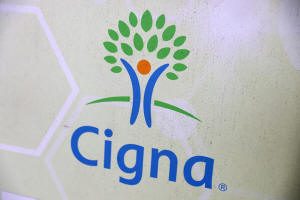Why are US pharmacy benefit managers under fire?
 Send a link to a friend
Send a link to a friend
 [April 17, 2024]
By Ahmed Aboulenein [April 17, 2024]
By Ahmed Aboulenein
WASHINGTON (Reuters) - Pharmacy benefit managers (PBMs) are in the
crosshairs of Republicans and Democrats in Congress but have so far
dodged any new litigation or reforms that had been targeted for
inclusion in last month's U.S. government budget deal.
Many lawmakers, drugmakers and government officials have pointed a
finger at these industry middle men, suggesting they play a critical
role in high prescription drug costs in the United States. The following
is what you need to know about PBMs.
WHAT ARE PHARMACY BENEFIT MANAGERS?
Pharmacy benefit managers are companies that handle prescription drug
benefits for health insurance companies, large employers, and Medicare
prescription drug plans - a group often referred to as payers.
The PBMs negotiate fees and volume-based discounts, known as rebates, on
behalf of payers with drugmakers and pharmacies; create lists known as
formularies of medications covered by insurance plans; reimburse
pharmacies by processing claims; and manage pharmacy networks. Many also
operate their own mail-order pharmacies. They collect fees from payers
and rebates from drugmakers.
Studies, including one from the Congressional Budget Office, show that
rebates lower drug costs for the government and consumers. Other studies
show a correlation between increases in a drug's list price and rising
rebates for the drug.

WHO ARE THE BIG PBM PLAYERS?
Three companies controlled 79% of U.S. pharmacy benefit management in
2022, according to the data platform Statista: CVS Caremark with 33%,
Express Scripts at 24%, and OptumRx owns 22% of the market.
The other noteworthy companies by market share are Humana Pharmacy
Solutions at 8%, Prime Therapeutics at 5%, and MedImpact Healthcare
Systems with 4%.
These six companies together control 96% of the PBM market.
WHO OWNS THE PBMs?
The top five pharmacy benefit managers are owned by companies that also
offer insurance and other healthcare services.
CVS Health owns Caremark and insurer Aetna as well as specialty
mail-order pharmacies, a national pharmacy chain and a physician's
group.
UnitedHealth Group owns OptumRx, insurer United Healthcare, specialty
pharmacies, physician groups and express medical and surgical centers.
[to top of second column]
|

Signage for Cigna is pictured at a health facility in Queens, New
York City, U.S., November 30, 2021. REUTERS/Andrew Kelly/File Photo
 Cigna operates an insurer, Express
Scripts and a specialty pharmacy.
Humana is an insurer and owns a benefit manager, while 19 different
Blue Cross Blue Shield plans own a stake in Prime Therapeutics.
HOW AND WHY ARE PBMs FACING INTENSE SCRUTINY
The U.S. Federal Trade Commission (FTC) in 2022 began investigating
the top PBMs and their impact on pricing and access to prescription
drugs.
The FTC is looking into the fees they charge, how they reimburse
pharmacies, clawback of payments to pharmacies outside of their
networks, and whether the companies steer patients to their own
pharmacies. It is also investigating whether benefit managers favor
more expensive drugs that yield higher rebates over lower-cost
alternatives.
Lawmakers have introduced about two dozen bills since last year
targeting PBMs including at least five with bipartisan support,
Congressional records show. Several have passed committees but have
yet to come to a vote by the broader Senate or House of
Representatives.
Separate bills aim to ban what is known as "spread pricing," a
practice in which PBMs charge health plans a larger amount for a
drug than they pay out to pharmacies. Some are seeking more
transparency under which the companies would be required to provide
more information on their non-public negotiations.
Rebates have also been a subject of proposed new government rules.
The Trump administration sought in 2020 to make rebates illegal for
Medicare prescription drug plans by removing the safe harbor
protection that shields rebates from federal anti-kickback laws. The
Biden administration delayed the rule until 2023 and Congress
further delayed it until 2027.
The Department of Justice is investigating UnitedHealth Group,
including the relationship between its UnitedHealthcare health
insurance business and its OptumRx PBM unit, according to a February
Wall Street Journal report.
(Reporting by Ahmed Aboulenein; Editing by Caroline Humer and Bill
Berkrot)
[© 2024 Thomson Reuters. All rights reserved.]This material may not be published,
broadcast, rewritten or redistributed.
Thompson Reuters is solely responsible for this content.
 |